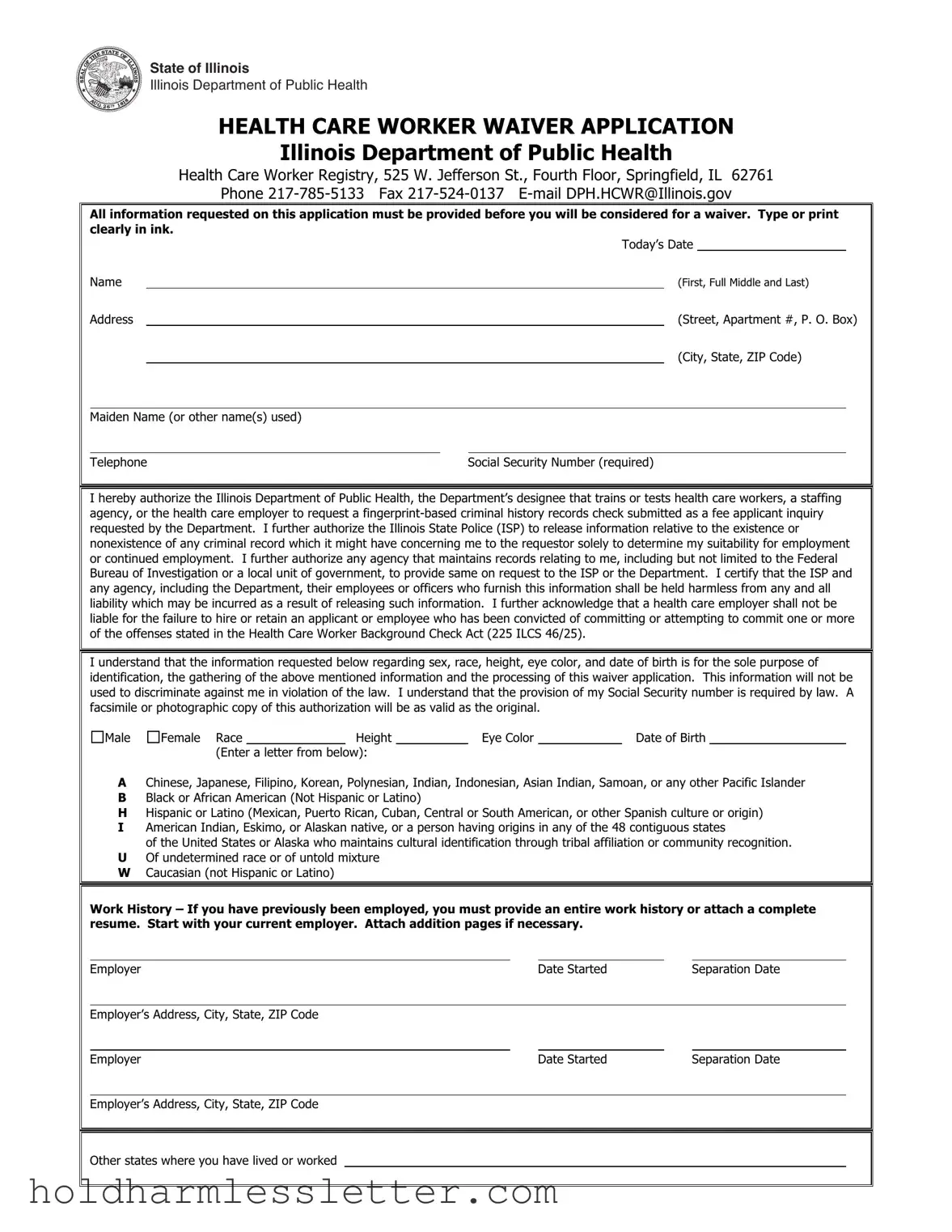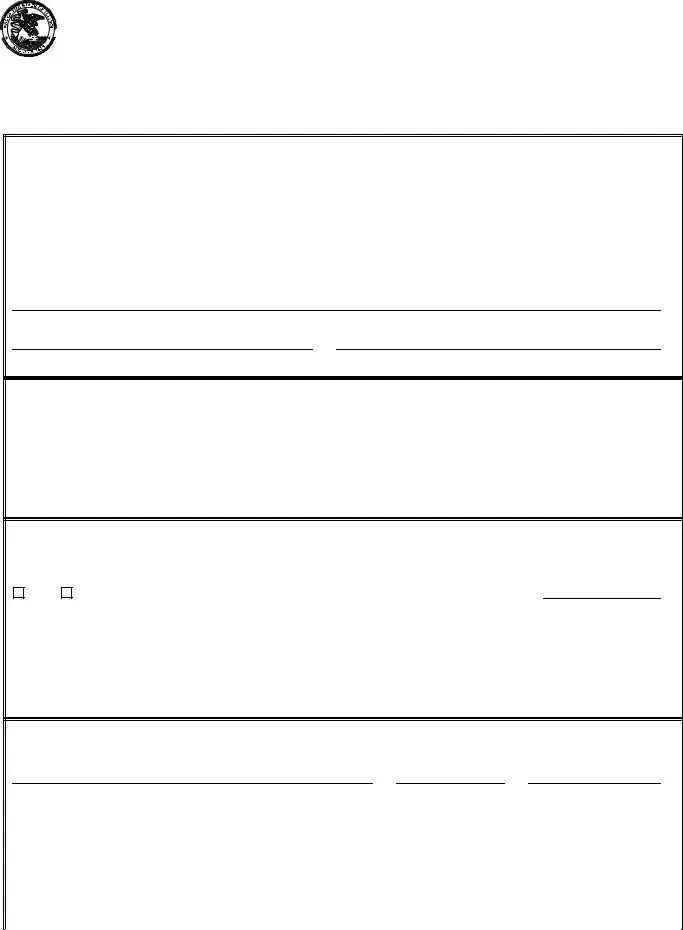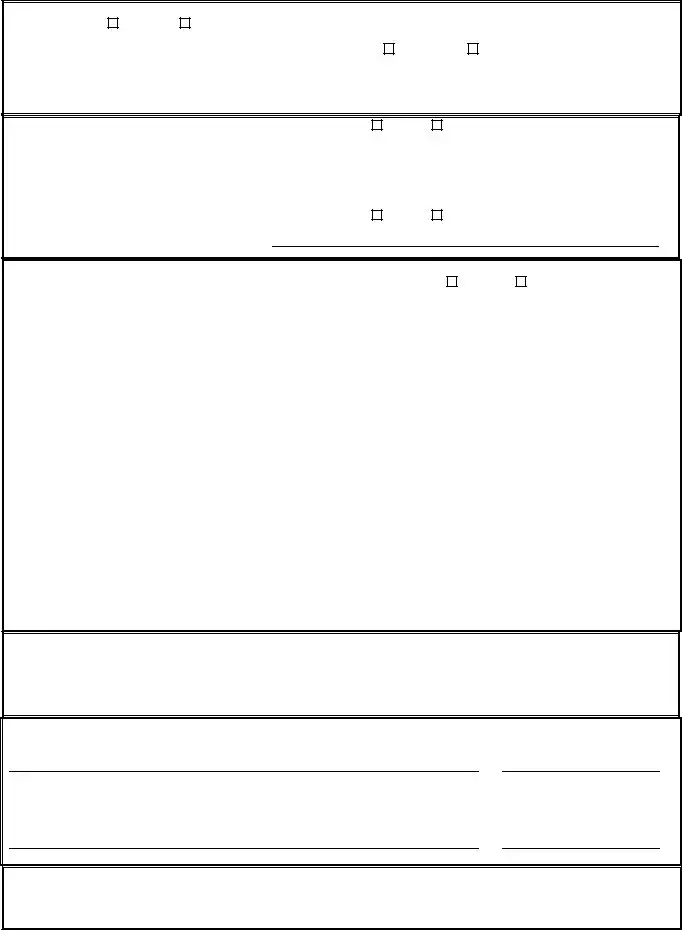The Illinois Consent to Background Check form shares similarities with the Illinois Waiver form in that both require the individual's consent for performing background checks and share personal information with the Illinois Department of Public Health or designated agencies for employment purposes. Both documents are used to ensure applicants meet the necessary criteria for their intended positions, focusing on safety and suitability.
Employment Application forms in Illinois are akin to the Waiver form because they often require detailed personal history, including past employment and any criminal records. Like the Waiver form, Employment Applications may ask for consent to verify this information, emphasizing the importance of accuracy and honesty in the hiring process.
The Illinois Volunteer Application form for non-profit or state organizations also parallels the Waiver form. Volunteers must disclose personal data and might need to consent to background checks to work with vulnerable populations, mirroring the waiver's purpose in the healthcare sector.
The Tenant Screening Authorization form, used by landlords in Illinois, resembles the Waiver form in its requirement for individuals to consent to checks of their background. This process involves evaluating criminal history and personal references to ensure the security and reliability of the tenant, similar to employment in healthcare settings.
The Professional License Application forms for healthcare workers in Illinois necessitate detailed personal history and may require background checks to ensure the applicant's suitability for licensure. This process echoes the Waiver form's emphasis on protecting public health through vigilance regarding applicants' backgrounds.
The Illinois Firearm Owner Identification (FOID) Card Application demands consent for a background check to verify the applicant's eligibility, akin to the Waiver form's requirement for healthcare workers. Both forms serve public safety by scrutinizing the history of individuals seeking certain permissions or positions in the state.
The Foster Care Application form in Illinois is similar to the Waiver form as it requires applicants to offer detailed personal information and consent to background checks. This ensures the safety and suitability of environments for children, paralleling the protection waiver aims to afford to healthcare patients.
Adoption Application forms in Illinois necessitate comprehensive personal history checks, including criminal background reviews similar to the Waiver form. These checks help safeguard the welfare of adoptees, reflecting the Waiver form's purpose of ensuring healthcare workers' suitability.
The Illinois State Scholarship Application includes aspects of personal history verification akin to the Waiver form, though for educational funding purposes. Applicants might undergo background checks to confirm eligibility, emphasizing the importance of integrity in state-supported programs.
The School Registration forms for public schools in Illinois, while primarily focusing on enrolling children in education, may require some level of background check or personal history of guardians, somewhat similar to the Waiver form's use in healthcare. This ensures the safety of the school community, paralleled by the healthcare community's protection through the waiver.









 Illinois Department of Public Health
Illinois Department of Public Health